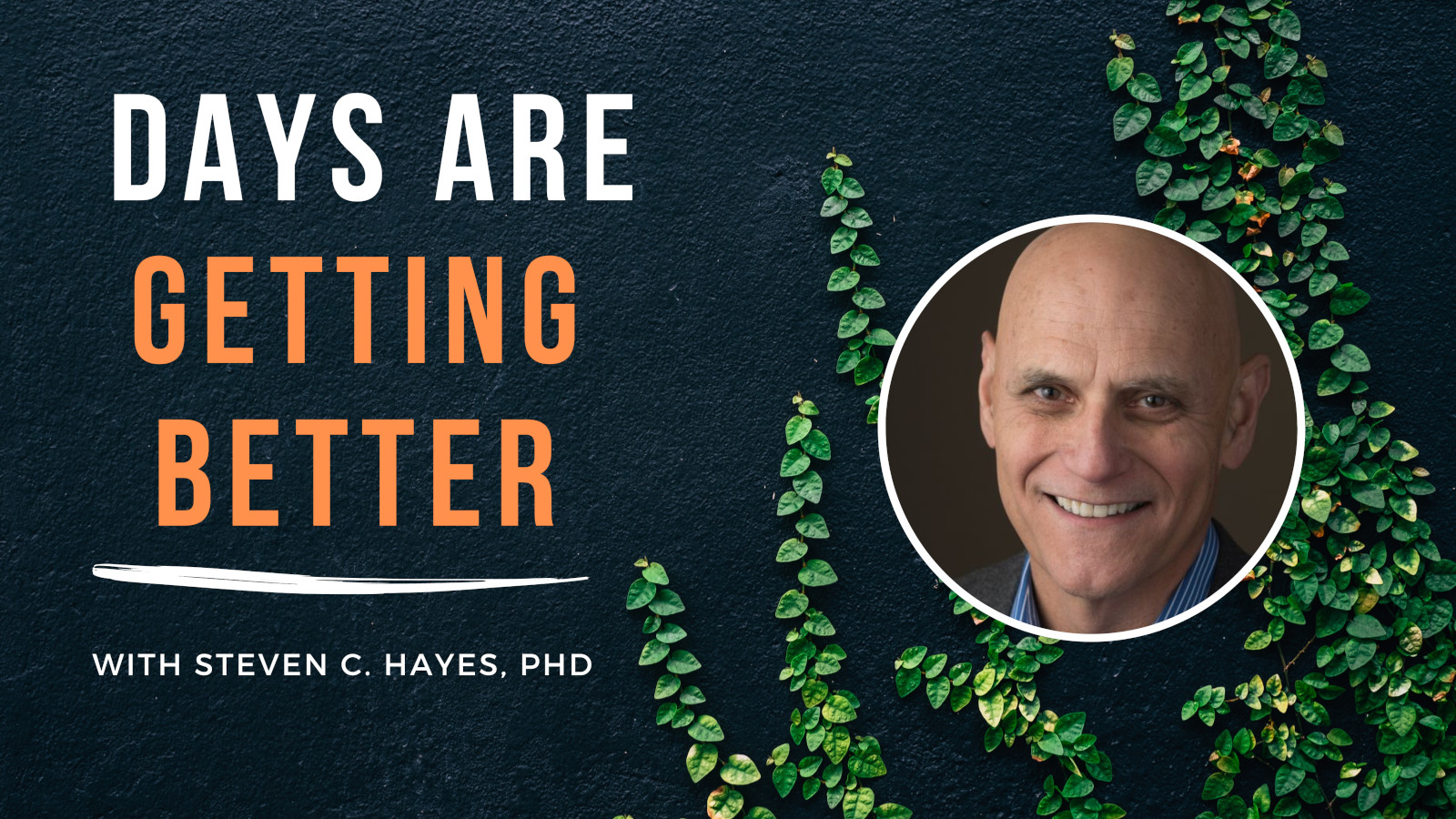In his classic book “Man’s Search for Meaning” Victor Frankl tells the story of a client of his who was terrorized by a constant fear of sweating. Whenever he expected to perspire, he would become anxious, leading him to sweat profusely, which would thus confirm his greatest fear. This cycle got worse and worse, until eventually, he decided to seek out professional help. He did not like what came next.
Frankl gave him an almost impossible task: The next time he perspired, he should show it to others. No more hiding. Instead, he should display his sweaty armpits for the world to see. And as if this wasn’t enough, he should try sweating as much as possible.
This was his worst nightmare coming true. And yet he followed through with the advice. And after years of suffering, in just a week he was freed from his phobia.
Many years later we’ve learned a lot about how “exposure” works and can best be done. It can indeed have a very rapid impact in many clients, and it is one of the best supported intervention methods in all of behavioral science. But what is the deeper lesson of emotion and exposure?
___
Your emotions help you make sense of the world. At the core of an emotion is a subjective experience of the valence of it — what emotion scientists call “affect.” Regardless of your situation, your emotions are quick to weigh in and generally speaking, affect is what we are most focused on. Do you have chocolate cake in front of you? That’s good! Do you see a spider on the table? That’s bad! Do you see the spider crawling towards your chocolate cake? That’s extremely bad!
Your affective reactions tell you which experiences are desirable, and which aren’t, but the total emotional experience includes what your body does, what thoughts you have, the context you are in and sensitive to, your urges, and your motivation. Emotions aren’t a simple guide but you can learn a lot by observing and describing them. You can learn a lot by appreciating their secret life.
The problem is this: The affective features of emotions tend to dominate … NOW. Our subjective valence of emotion is almost all we can see. This is great when you want to decide which topping goes best for your ice cream. But it can be harmful for your more meaningful goals and interests.
When emotions are only about what is pleasant or unpleasant in subjective experience right now – the more important features of emotion disappear. We should be noticing those features. What does this situation remind me of? Exactly what am I feeling in my body, and where? Is there a name for this? Have I felt it before? What does this feeling suggest I need or should attend to?
You can learn a lot by just noticing and describing how you feel, and what it suggests about how best to reach your goals. These are the very issues that most impact you in the long term. When your life revolves entirely around the subjective valence of what you feel NOW, those all recede into the background.
You are actively programming emotional ignorance. You are in for trouble.
Instead of exploring healthy eating, you might disappear mindlessly into another bowl of ice cream with rainbow sprinkles. Instead of saving and investing for the values-based ways you can use your money, you might spend way too much on frivolous online shopping. Instead of reconciling a conflict with your partner, you let out an uncensored rant. And instead of letting emotional vulnerability orient you toward what you care about, you may let your irrational fears and insecurities control and dictate your life.
If you can slow down and expand; if you stop running or clinging and adopt a sense of curiosity, emotions become more nuanced and differentiated. Remember how scary it used to be when you first drove a car and how that impact made it hard to sequence your skills? Chances are you experience a softer and broader set of emotions now while driving and their unwelcome behavioral interference is much less. Instead, now you can appreciate the drive.
When you broaden your actions and shift more to curiosity and noticing — even though affect tells you to run — you can learn more and emotions become a helpful guide. This is why I advocate for making room for your emotions, but without clinging..
When fear comes up, don’t just walk away so that fear dissipates. Instead, stay. Allow yourself to feel the nervousness, the churning of your stomach, the weak knees, the sweating, and everything else that comes along with it. It’s one of the hardest things to do in life, but it’s also one of the most rewarding, because it allows you to do what matters to you: Whether this is about driving a car, reaching out for support, or carelessly sweating in public.
When joy comes up, savor and appreciate but do not cling. Remember that “this too shall pass” and that is a good thing. For emotions to carry useful information it needs to be so.
If you run, you are telling basic parts of your brain “I guess this threat really was real. I better crank up the emotional lever, so I’m protected next time”. You are training yourself to fear, regardless of that situation. If you cling, you are saying “Change from this emotion is a threat” and since that is itself not a happy place to be, happiness slips through your hands like sand.
Fortunately, it also works in the opposite direction: The more you allow yourself to feel your emotions, as they are — not as your immediate valenced reactions say they are — the more the rise and fall of emotions can ground you in the moment in a helpful way.
Note that you cannot fool yourself. If you open up to an emotion in order to get rid of it, you will be disappointed. Allow the full emotion – without ifs or buts.
___
If you want healthy control of your life, you need to actively train your emotions to be your ally. They have a role to play that is richer and far more interesting than their subjective valence in the present. You will never enter into their secret life until you stop running or clinging.
Observe. Describe. Appreciate
Do that and you may find you have allies for healthy living that were there all along.







